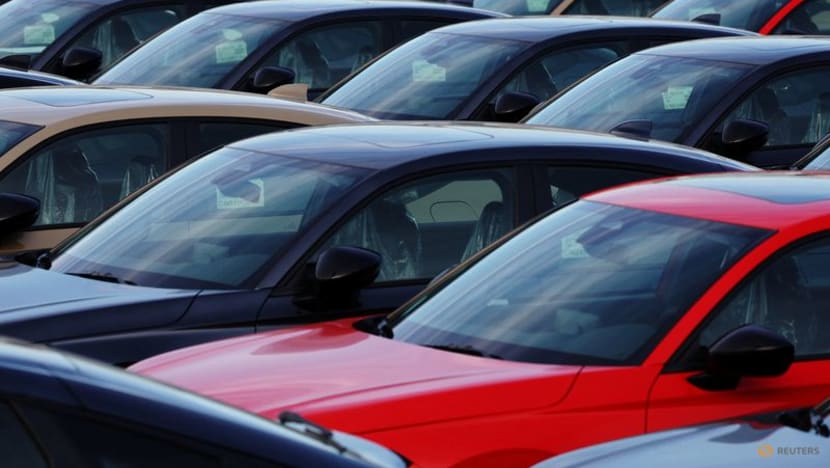World
Japan Inc Divided on Trump Tariffs; Automakers Brace for Impact

Japan’s corporate landscape is showing signs of division in response to US President Donald Trump‘s tariffs. Major exporters like Toyota Motor are revising profit forecasts downward, while companies such as Sony and Honda indicate that the impact might not be as severe as initially anticipated. As Trump’s tariffs on global shipments took effect on August 6, 2023, Japan’s leading firms provided a mixed response to how these measures and a strengthening yen are affecting their operations in the United States, the country’s fifth-largest trading partner.
The uncertainty surrounding the tariffs has caused significant concern among companies worldwide. Governments are actively seeking to negotiate deals to shield major exporters from potential disruptions. While some signs of optimism have emerged, Japanese firms remain apprehensive about the future of tariffs on automobiles and potential new duties targeting pharmaceuticals and semiconductors.
Automakers Face Pressure
A potential move by Trump targeting semiconductors with up to 100 percent tariffs on certain chip imports is raising alarms among Japanese supply-chain firms. Meanwhile, shares of companies with plans for US expansion have seen gains. On August 6, Tokyo urged Washington to swiftly implement a bilateral agreement aimed at reducing US tariffs on Japanese car imports from 27.5 percent to 15 percent, a reduction announced last month.
Despite the announcement, Tokyo is still working to clarify the terms of the agreement, which has left corporate planners in a state of uncertainty. “It’s honestly very difficult for us to predict what will happen regarding the market environment,” said Takanori Azuma, head of finance at Toyota. The company has revised its operating profit forecast for the fiscal year ending in March 2024, cutting it by 16 percent to 3.2 trillion yen (approximately USD 21.7 billion) due to tariff-related costs and the stronger yen. Azuma noted that despite these challenges, Toyota remains committed to producing cars for US customers.
“Even at this point, incentives are very low and inventory is limited, so many customers are waiting. That’s true not only in the US, but also in Japan,” he added. Japanese automakers have found themselves among the hardest hit by the ongoing trade dispute, striving to absorb cost increases without passing them on to consumers.
Mixed Fortunes Among Other Companies
In contrast to Toyota’s struggles, Sony has raised its full-year profit forecast by 4 percent to 1.33 trillion yen (around USD 9 billion). The company noted that its estimated tariff impact has decreased to 70 billion yen, down from 100 billion yen. Similarly, Subaru reported a reduced tariff impact on its vehicles but cautioned that it remains significant. On August 5, Honda announced a 31 percent cut in its projected tariff impact to 450 billion yen, while acknowledging that “there are still many unknowns.”
Regarding the semiconductor industry, Trump has offered a key exemption: the 100 percent tariff will not apply to companies that manufacture in the US or are committed to doing so. However, Japan’s semiconductor sector has been hesitant to make large-scale investments in US production. This caution is reflected in stock performance, as shares of Japanese chip equipment maker Tokyo Electron fell 2.7 percent on August 6, and testing equipment firm Advantest slipped nearly 1 percent. In contrast, chipmakers with substantial US expansion plans, such as Taiwan’s TSMC and South Korea’s Samsung, saw their shares rise by 5 percent and 2.5 percent, respectively.
Tokyo has emphasized that the US has agreed not to impose worse tariff treatment on Japan compared to other countries in the pharmaceutical and semiconductor sectors. Last year, Japan recorded a USD 70 billion trade surplus with the United States, with bilateral trade amounting to nearly USD 230 billion.
-

 Business5 months ago
Business5 months agoKenvue Dismisses CEO Thibaut Mongon as Strategic Review Advances
-

 Lifestyle4 months ago
Lifestyle4 months agoHumanism Camp Engages 250 Youths in Summer Fest 2025
-

 Sports4 months ago
Sports4 months agoDe Minaur Triumphs at Washington Open After Thrilling Comeback
-

 Sports5 months ago
Sports5 months agoTupou and Daugunu Join First Nations Squad for Lions Clash
-

 Top Stories5 months ago
Top Stories5 months agoColombian Senator Miguel Uribe Shows Signs of Recovery After Attack
-

 World5 months ago
World5 months agoASEAN Gears Up for Historic Joint Meeting of Foreign and Economic Ministers
-

 Health4 months ago
Health4 months agoNew Study Challenges Assumptions About Aging and Inflammation
-

 Business5 months ago
Business5 months agoOil Prices Surge Following New EU Sanctions on Russia
-

 Entertainment4 months ago
Entertainment4 months agoDetaşe-Sabah Violin Ensemble Captivates at Gabala Music Festival
-

 Entertainment4 months ago
Entertainment4 months agoBaku Metro Extends Hours for Justin Timberlake Concert
-

 Top Stories5 months ago
Top Stories5 months agoRethinking Singapore’s F&B Regulations Amid Business Closures
-

 Business5 months ago
Business5 months agoU.S. House Approves Stablecoin Bill, Sends to Trump for Signature









